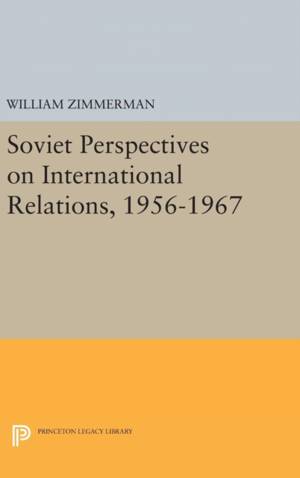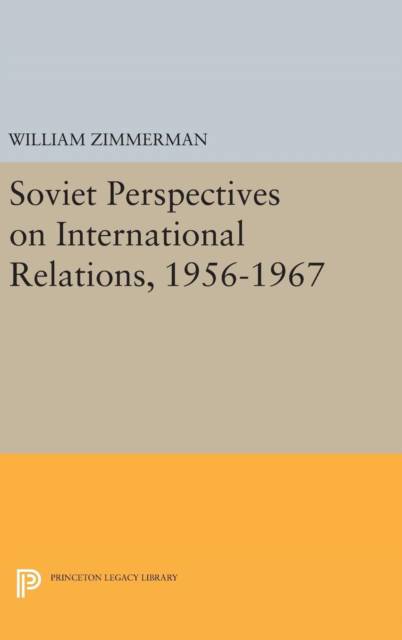
- Afhalen na 1 uur in een winkel met voorraad
- Gratis thuislevering in België vanaf € 30
- Ruim aanbod met 7 miljoen producten
- Afhalen na 1 uur in een winkel met voorraad
- Gratis thuislevering in België vanaf € 30
- Ruim aanbod met 7 miljoen producten
Soviet Perspectives on International Relations, 1956-1967
William ZimmermanOmschrijving
Serious debates and discussions on world politics in Russian journals and books have greatly increased since 1956, resulting in a steadily changing appraisal of the world political situation by the Russians. Professor Zimmerman studies that changing appraisal. He describes Soviet international relations perspectives during Khrushchev's years in power and the three years following. He uncovers the answers Soviet commentators implicitly or explicitly give to such questions as: Who, in the Soviet view, are the main actors in international politics, and what does identifying them suggest about the Soviet perspective? In the Soviet analysis, what is the global distribution of power? How do Soviet analysts characterize the capabilities, motives, and decision-making process of the United States?
Contents: I. Introduction. II. The Emergence of International Relations as a Discipline. III. The Actors. IV. The Hierarchy. V. The Distribution of Power. VI. United States Foreign Policy from the Soviet Perspective. VII. The Balance of Power as System and Policy. VIII. Post-Imperialism and the Transformation of Soviet Foreign Policy. Originally published in 1969. The Princeton Legacy Library uses the latest print-on-demand technology to again make available previously out-of-print books from the distinguished backlist of Princeton University Press. These editions preserve the original texts of these important books while presenting them in durable paperback and hardcover editions. The goal of the Princeton Legacy Library is to vastly increase access to the rich scholarly heritage found in the thousands of books published by Princeton University Press since its founding in 1905.Specificaties
Betrokkenen
- Auteur(s):
- Uitgeverij:
Inhoud
- Aantal bladzijden:
- 348
- Taal:
- Engels
- Reeks:
Eigenschappen
- Productcode (EAN):
- 9780691646060
- Verschijningsdatum:
- 19/04/2016
- Uitvoering:
- Hardcover
- Formaat:
- Genaaid
- Afmetingen:
- 156 mm x 234 mm
- Gewicht:
- 662 g

Alleen bij Standaard Boekhandel
Beoordelingen
We publiceren alleen reviews die voldoen aan de voorwaarden voor reviews. Bekijk onze voorwaarden voor reviews.











